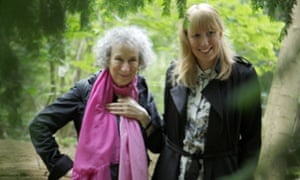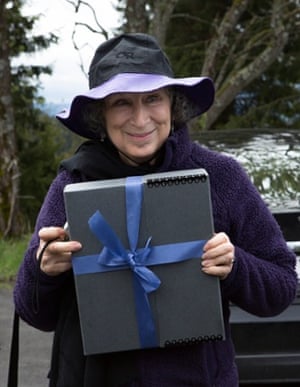The State of the Libraries
by Robert Darnton
EDITOR’S NOTE:
Pforzheimer University Professor Robert Darnton, the Harvard University Librarian since 2007, is retiring at the end of the academic year. This is the text of his remarks at a farewell celebration with members of the library community and other friends on May 13. The individuals he addresses at the beginning of his remarks are Sarah E. Thomas (vice president for the Harvard Library and Larsen librarian for the Faculty of Arts and Sciences); Dan Cohen (executive director of the Digital Public Library of America, who had spoken at length about Darnton’s work); and Alan Garber (Harvard’s provost). Links to additional sources of information have been inserted by Harvard Magazine
.
Sarah, Dan, Alan, thank you for your generous remarks. I can’t pretend to be worthy of them, but I remember a lesson that I learned from anthropologists: retirements are rites of passage. By making the retiree feel good—or by roasting him—speakers reinforce the bonds of the community. This occasion provides a way for us as a collectivity to come together and to celebrate our great library. I would like to use it as an opportunity to reflect on my own experiences both as a reader and as a leader of the Harvard Library.
I first set foot in a Harvard library 58 years ago, and I must say: it was love at first sight. Word
spread among the freshmen that undergraduates, even freshmen, were allowed to consult rare books in Houghton. Taking my courage in my hands, I crossed the threshold of that great building and asked whether I could see Melville’s copy of Emerson’s essays. It arrived on the desk within minutes, and soon I was trying to read Emerson through Melville’s eyes—impossible, of course, but imaginable as a thought experiment, because Melville scribbled a great deal in the margins. In one essay, Emerson was expatiating on the world soul and how it hovered over the globe, even at rough spots like the waters of Cape Horn, spreading beneficence below. Melville put an angry X on the right-hand margin; and after an X on the bottom margin, he wrote: “To one who has crossed Cape Horn as a common sailor, what stuff this is.”
Eight years later, I returned to Harvard as a Junior Fellow and worked from a carrel in Widener. I
was drafting a biography of Jacques-Pierre Brissot, an important leader of the French Revolution. The stacks nearby were loaded with pamphlets from the Revolution, including several by Brissot. After serving myself from a shelf, I opened a pamphlet from 1791 and found an inscription on the title page: “To the students of Harvard College, Jacques-Pierre Brissot.”
I had a somewhat similar experience in 2007 after I returned again to Harvard, this time as its
librarian. By then I had become an expert on what were known to the police in eighteenth-century France as “bad books”—that is, pornographic, irreligious, and seditious literature, such as
La Vie privée de Louis XV, a particularly outrageous bestseller. Not a great academic specialty, you might say, but someone had to do it. I spent so much time studying these racy, forbidden books and talking about them whenever I found a listener that our daughter Margaret, then in the first grade, proudly said to her schoolmates one day on the playground, “My father is a pornographer.” Apparently she thought it was something grand like a geographer.
In 2007 I wandered into an exhibition in Houghton, and what should I find exposed under glass but
The Private Life of Louis XV translated into English and, written in ink on the upper right corner of the title page, “G. Washington.” The father of our country read this wicked stuff—and so did a large proportion of the literate elite—but I would never have known it if I hadn’t spent time in Houghton.
The President and Fellows of Harvard probably did not know about my low-brow research when they invited me to become the head of the library; and after I arrived I tried to concentrate on higher things—issues and causes that can be summarized in one word: openness. Of course, my principal responsibility has been to the students and faculty of Harvard; but Harvard’s library is so great that by making it still greater we can contribute mightily to the entire world of knowledge. The Harvard library is a national asset. We should share its intellectual wealth, and we can do so, thanks to the power of modern technology. By opening up our library, we can open access to knowledge to everyone in the country, everyone in the world.
How have we tried to accomplish this mission? Let me mention a few of the innovations that have
taken place during the past eight years—with the understanding, of course, that business-as-usual, providing services to the Harvard community, remained our top priority.
On my first day of work, Jonathan Hulbert, a superb lawyer from the Office of General Counsel,
arrived in my office and informed me that I was about to enter into negotiations with Google concerning its project to digitize all the books in the world.
Google began at Harvard, where they were digitizing their way through 850,000 books in the public domain; but they also wanted to
digitize books covered by copyright. That struck me as a bad idea, and it looked even worse when I met with Google and discovered that it was secretly negotiating with authors and publishers who were suing it for breach of copyright. They wanted to transform Google’s original project, which was merely a search service, into a giant commercial library, which would, in effect, create a new kind of monopoly, a monopoly of access to knowledge in digital form. We had some heated polemics, especially for
my part in The New York Review of Books; and in the end, a federal district court in New York ruled that Google Book Search was a violation of the Sherman Anti-Trust Act.
Even before the court declared Google’s project dead, a group of us launched a project to make
the resources of America’s research libraries accessible to all Americans online and free of charge.
The Digital Public Library of America [DPLA] began here at Harvard at a conference on October 1, 2010, and Harvard has made an enormous contribution to it, in developing its technical infrastructure as well as in contributing to its collections. The DPLA now makes 10 million objects available to users in every country in the world—except three: North Korea, Chad, and Western Sahara. It just celebrated its second anniversary, and I think it can be declared a success, thanks in large part to the leader of its original steering committee,
John Palfrey, the digital whiz kids at the
Berkman Center, and the current executive director Dan Cohen, who has performed miracles since he took over in 2013.
As another example of openness, I would cite the
unanimous vote of the Faculty of Arts and Sciences on February 12, 2008, which required all its members to make their scholarly articles freely available from a digital repository. During a long and thorough debate, Stuart Shieber made a convincing case for
Open Access. His draft of the FAS resolution is now recognized as “the Harvard model,” which has become the gold standard for Open Access policies. It has been adopted by 60 universities—and also by all the other schools at Harvard.
We then built DASH (Digital Access to Scholarship at Harvard), an open-access repository, which
makes Harvard scholarship freely available around the world. DASH now contains 23,600 works, which have been downloaded more than 5 million times. It is especially used in developing countries, above all in Africa, where 78 percent of academic libraries have less than $100,000 per year to spend on the subscriptions to scholarly journals. An article deposited in DASH will reach far more readers than it could ever reach through publication in a journal.
To administer DASH and to promote Open Access in general, we created an
Office for Scholarly
Communication, first directed by Stuart and now by
Peter Suber, the world’s leading expert on OA. Peter has extended the Office’s activities in new directions, including a copyright advisory service and a program to help commercial journals “flip” their business models so as to become open-access publications sustainable online from processing fees. The Office for Scholarly Communication has sponsored all sorts of innovations within the library and has helped other libraries adopt them, but it depends on a grant which runs out at the end of 2016. So we must find a way to maintain it at full strength in the future.
When I arrived at Harvard, I asked how many libraries there were in the university. The answers varied from 40 to 104. By now, thanks to the hard work of
Sarah Thomas and hundreds of librarians, we are developing an integrated system composed of 73 libraries with a total of nearly 20 million volumes. But how many manuscripts do we possess—not just in the university archives but in all the libraries? No one could answer that question when I asked it. Therefore, I appointed a committee to survey all our manuscript collections, and it reported that Harvard has 35 miles of archives containing 400 million manuscript items. More important, it identified the location of particularly rich runs of material—everything related to North America in the seventeenth and eighteenth centuries. We are now digitizing these manuscripts and will make them freely available from a gigantic data base. This is complex work, full of problems concerning preservation, metadata, and storage. But it will transform our understanding of the origin of education in the United States and even of the United States itself. Moreover, we are coordinating our efforts with digitizing projects in the Boston Public Library, the Massachusetts Historical Society, the New York Public Library, and the Bibliothèque et archives nationales du Québec. Colonial Archives of North America, as this collective enterprise is known, provides another example of how Harvard can use its leverage to open up vast new areas of knowledge.
We have similar projects as well. One, the
Emily Dickinson Archive, has made Harvard’s collection of Dickinson’s poems available as an open-access resource that will be used not just by scholars but by high-school teachers throughout the country.
Harvard has the largest collection of Ukrainian material of any library outside Ukraine—and perhaps inside Ukraine as well, since so much was destroyed there during the tragedies of the twentieth century. By digitizing our collections, we can make the cultural heritage of Ukraine available to the Ukrainian people as well as the rest of the world.
Harvard has also opened up its technical resources. In 2011 it made 12 million of its metadata
files freely available through the Internet.
I could go on and on, but I would like to conclude with a point so familiar among librarians that
you may accuse me of preaching to the choir.
The library is the heart and soul of Harvard. The University grew up around the original core of 400 books that John Harvard left to the tiny Cambridge academy in 1638. Now, 377 years and 20 million volumes later, we have the
greatest university library in existence—and that is a heavy responsibility. By maintaining our collections and sharing them through open access, we can enrich life, not only on our campus but everywhere
in the world.
Source:
Harvard Magazine










